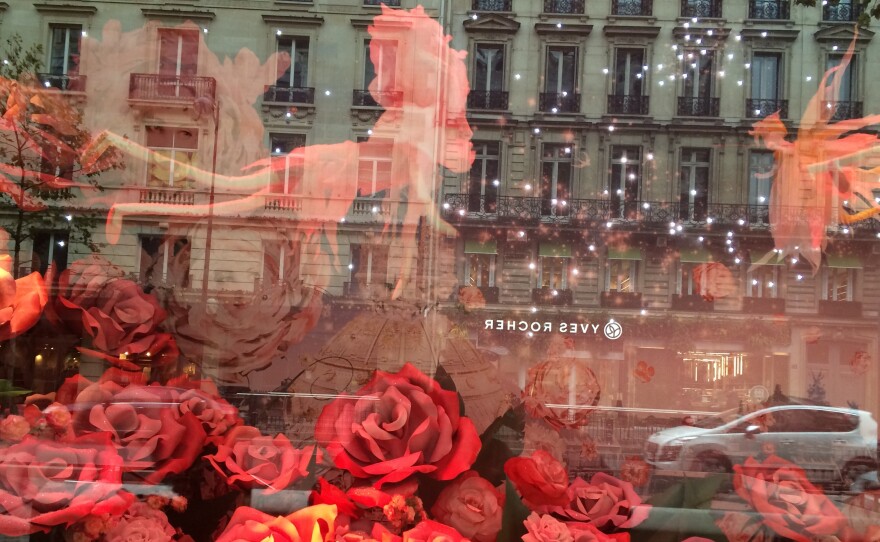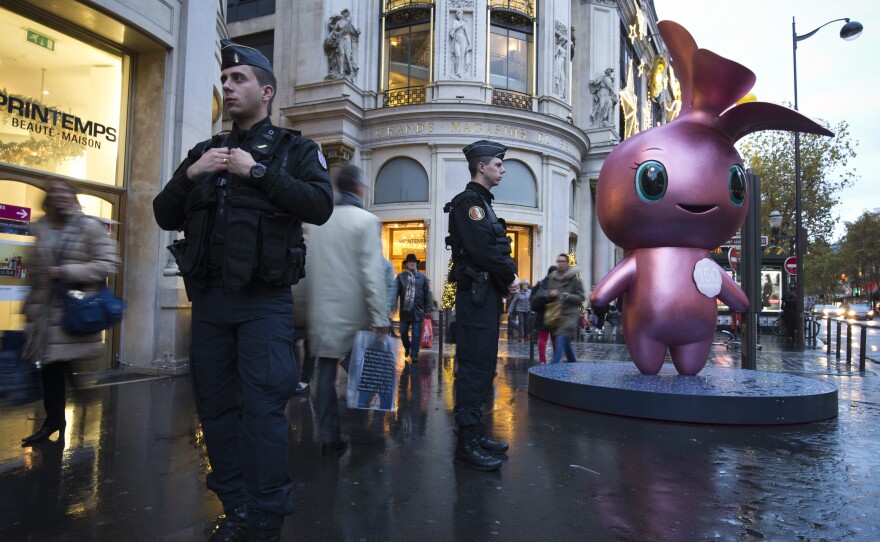
If you walk along the shopping streets of Paris, you could be excused if you thought the city had somehow managed to put last week's terrorist attacks behind it.
Along Boulevard Haussmann, children bundled against the cold climb small platforms to gaze, nose-to-glass, at the Christmas windows of the Printemps department store. The sidewalks are crowded, and the city's holiday shoppers appear to be arriving in droves.
But try to walk inside Printemps — or the nearby Galeries Lafayette — and the sense of normalcy fades. Many of the stores' entrances are padlocked shut, funneling shoppers to specific entrances where security is tight.
Officers ask customers to open their bags for examination. Every winter coat must be pulled open, to ensure it isn't covering some sort of wearable explosive, a new reality in this city. Magnetometer wands are swiped over every man, woman and child, looking for weapons.
"Ce sont les temps, madam," said one security officer, as I looked askance when he asked me to open my winter coat. "It is these times, madam."
France has extended its state of emergency – the first since 1961 — for three months. Politicians yesterday voted to extend the emergency measures which give police more power to carry out arrests and searches and allow them to ban vehicles and even foot traffic, at times and places of their choosing.
Police in France have carried out some 800 raids in the week since last Friday's attacks, according to the country's Interior Ministry. Nine people have been held and 174 weapons have been seized, including 18 military-style guns. More than 150 people have been placed under house arrest as authorities fan out across France in hopes of preventing any follow-on attacks.
Copyright 2015 NPR. To see more, visit http://www.npr.org/.






